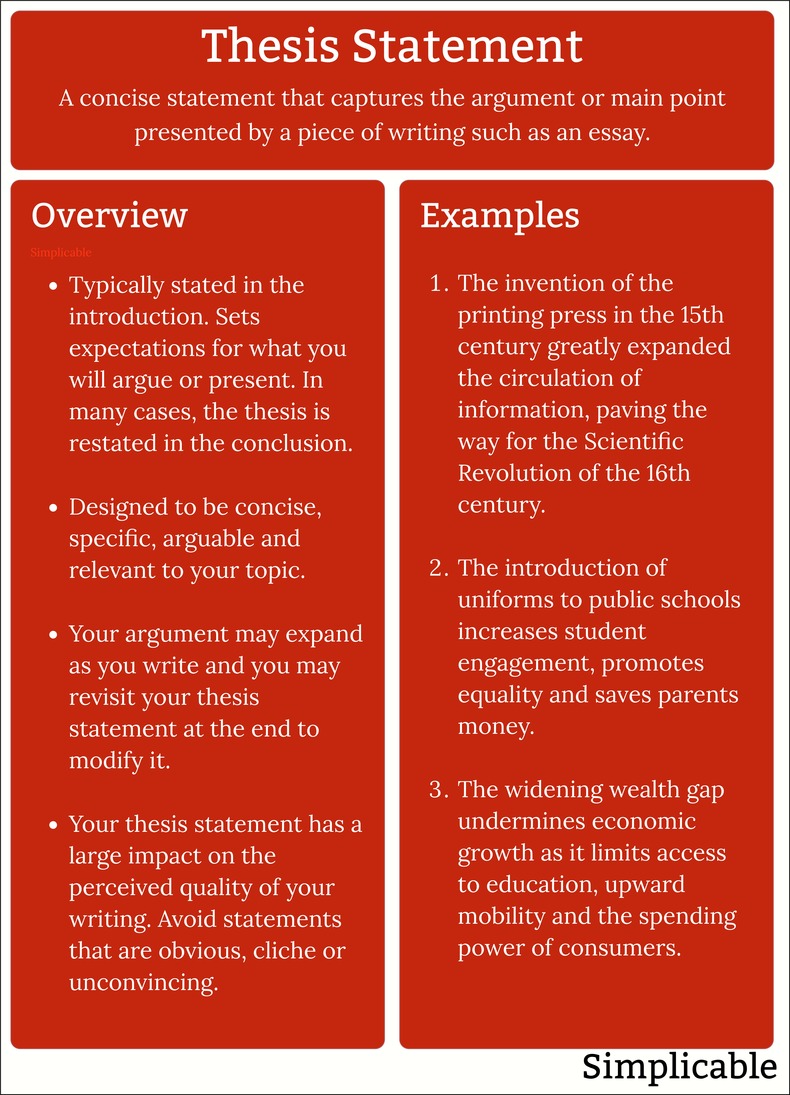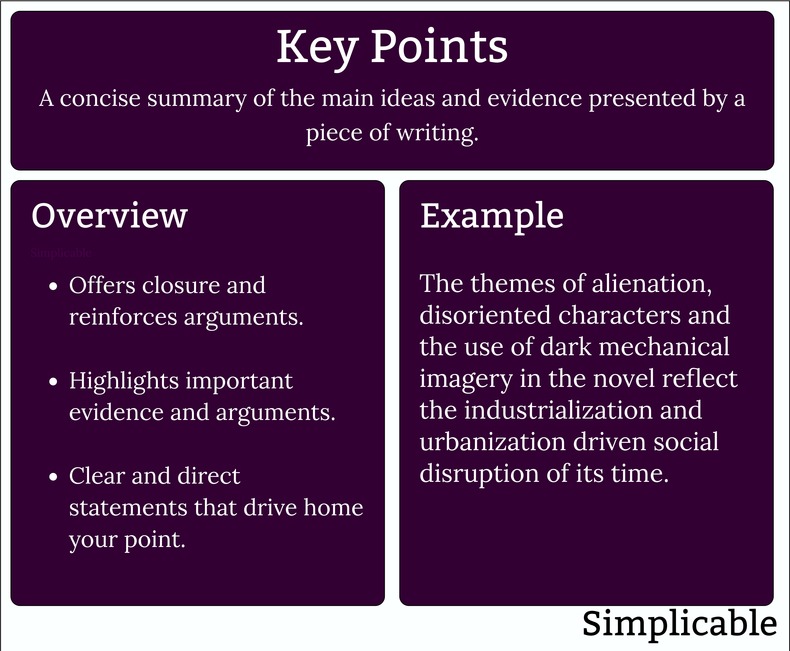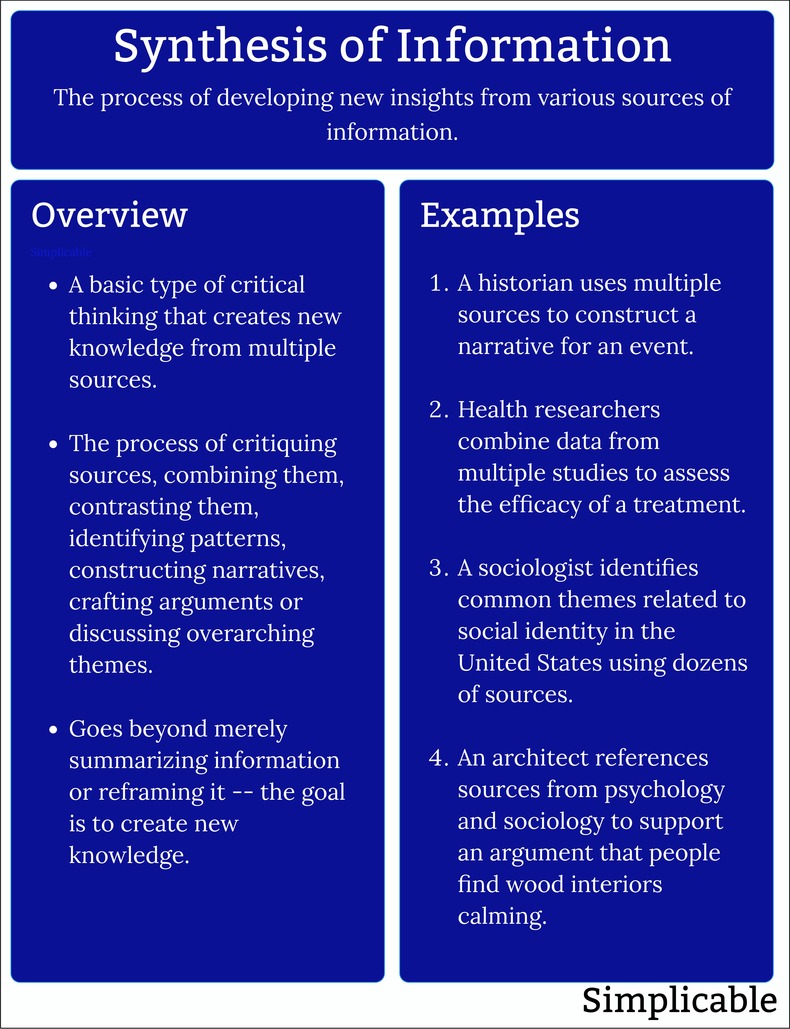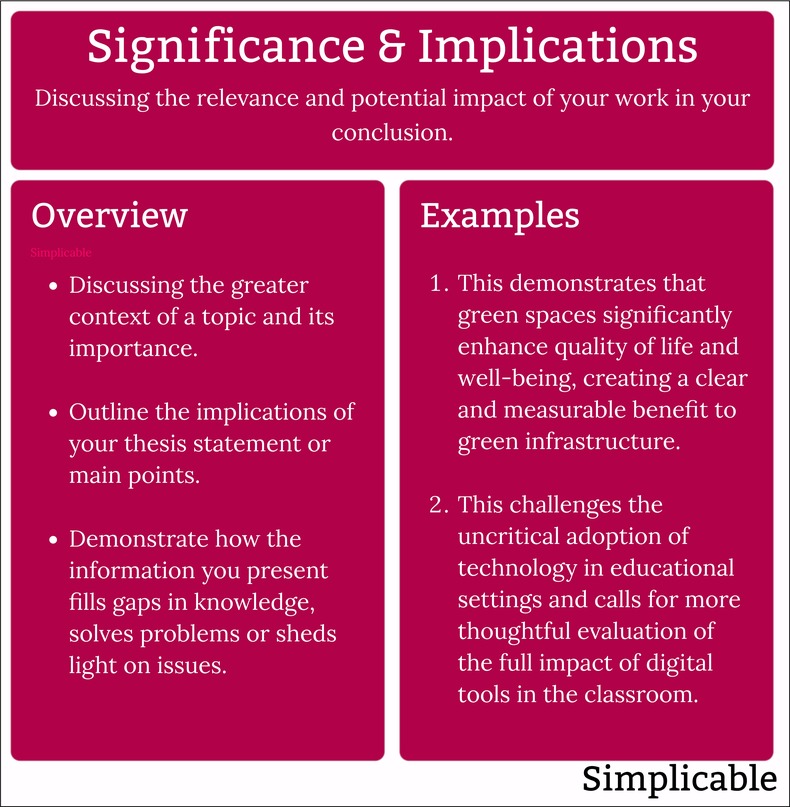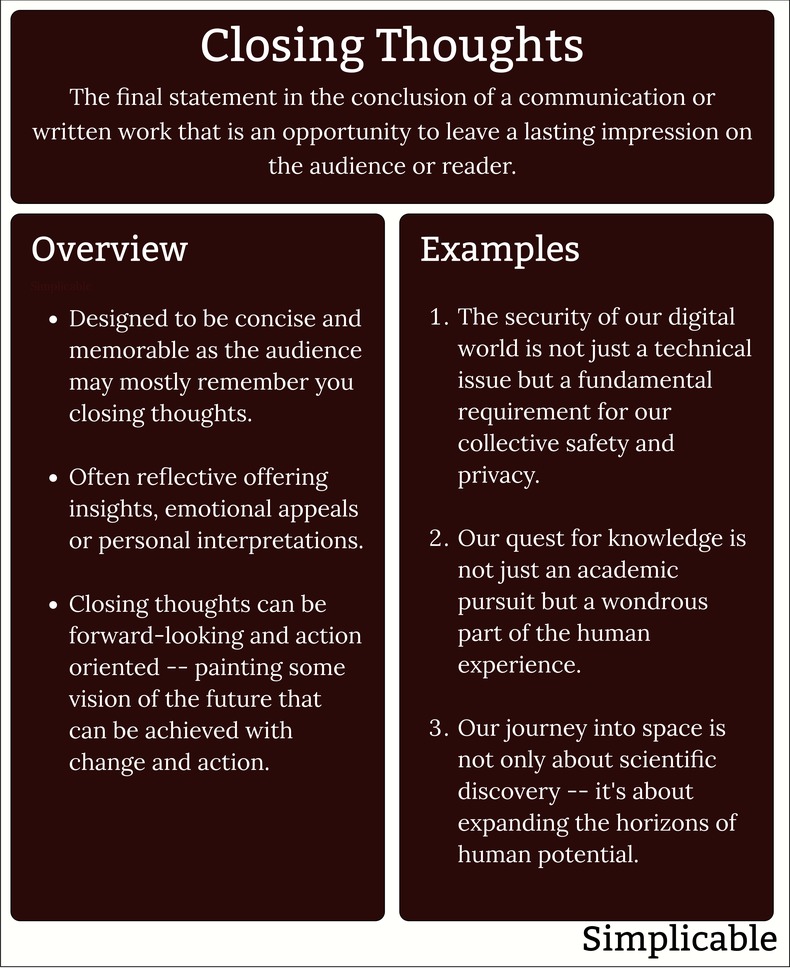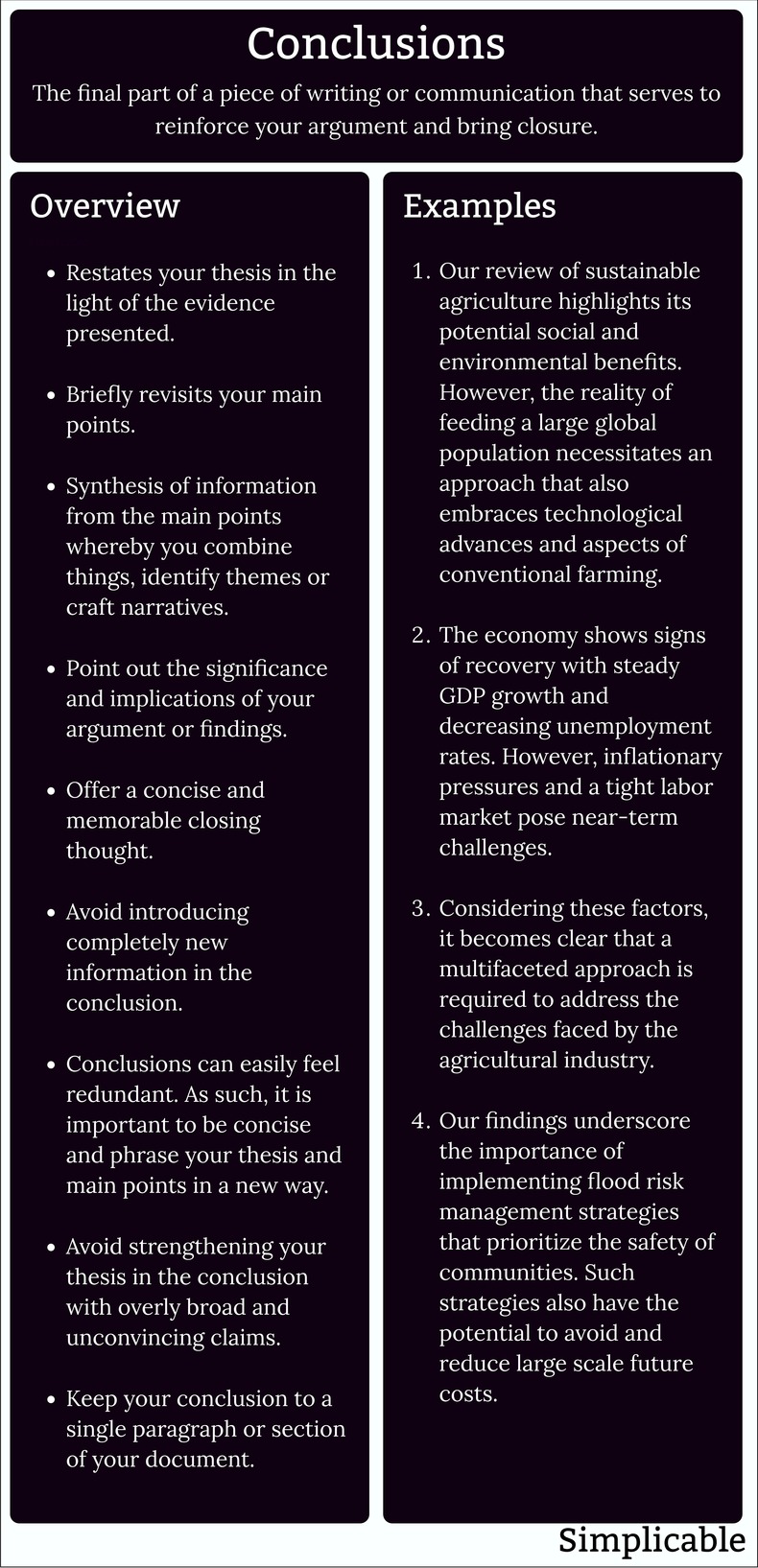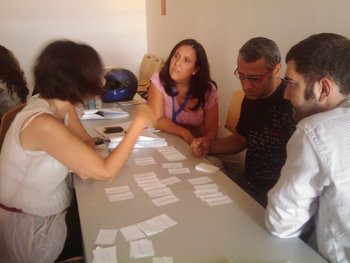|
| |
A conclusion is the final part of a presentation, speech, essay or document that brings closure to your argument. A well-crafted conclusion conveys your thesis, your key arguments and the significance of your findings. Ideally, a conclusion can engage your audience to leave a lasting impression. The following are the basic parts of a conclusion with examples.
Thesis Statement Restating your thesis statement to demonstrate consistency and to drive your point home. This should be stated in a slightly different way to avoid repetition.Key PointsShow how your key points come together to support your thesis.
Synthesis of InformationA conclusion doesn't just summarize but rather draws new implications from what you have discussed. This is done without presenting any new information but rather drawing new insights from the information you have presented.Significance & Implications Discussing what your findings mean in terms of their significance and future implications.Closing ThoughtA final statement intended to be inspirational or thought-provoking. This can involve reflection, insights or a challenge to your audience.SummaryConclusions serve to bring closure to writing or communication by reiterating your thesis or argument and your main supporting points. They also typically include closing thoughts designed to be memorable and to express the character of your work.Next: Transition Words For Conclusions
More about critical thinking:
If you enjoyed this page, please consider bookmarking Simplicable.
A disciplined, systematic analysis of evidence that arrives at an opinion, judgement or critique.
An overview of critical thinking with examples.
The definition of skepticism with examples.
The definition of realism with examples.
The definition of pragmatism with examples.
An overview of cognitive strengths with examples.
An overview of synthesis of information with examples.
A glossary of learning terms.
A list of creative learning techniques.
The relationship between education and unlearning.
An overview of curiosity drive.
An overview of trained incapacity.
A definition of mnemonics with several examples.
The common types of learning objective.
A definition of direct experience with examples.
The definition of mastery with examples.
TrendingThe most popular articles on Simplicable in the past day.
Recent posts or updates on Simplicable.
Site Map
© 2010-2023 Simplicable. All Rights Reserved. Reproduction of materials found on this site, in any form, without explicit permission is prohibited.
View credits & copyrights or citation information for this page.
|
